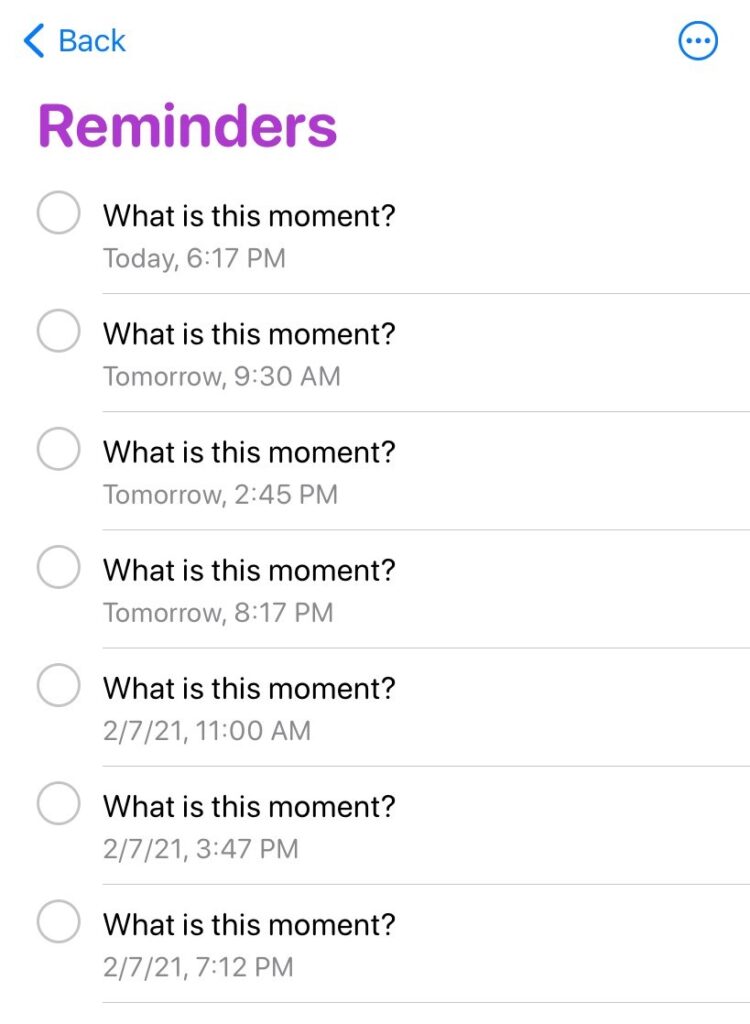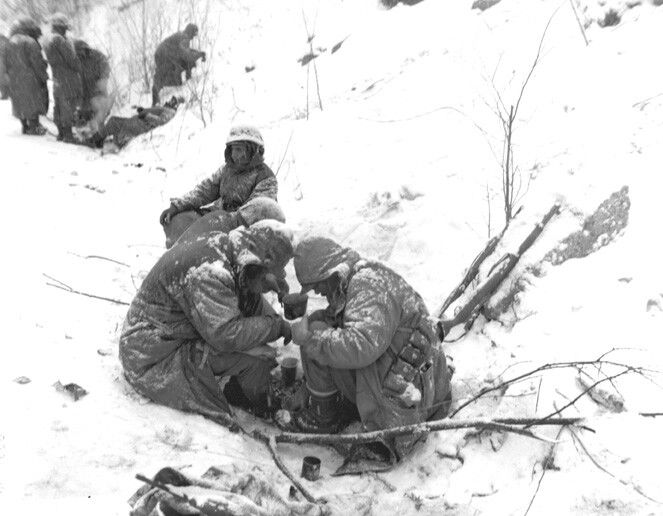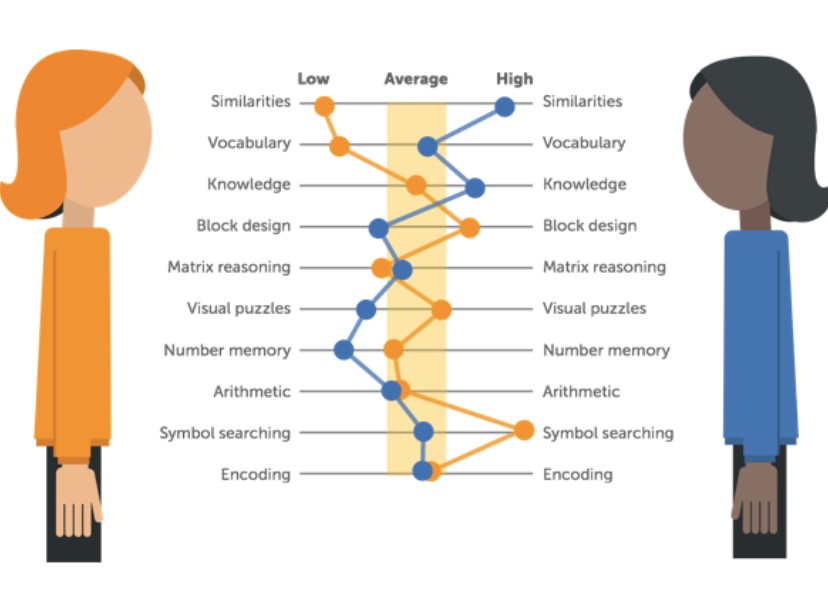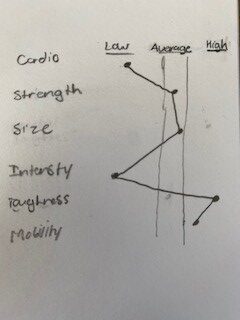Weekend Challenge #55: The Last Challenge is to Never Stop Challenging
It’s been over a year since I introduced the LIFE Council and the Weekend Challenges. The goal was simple: provide practical processes for progress toward the principles – love, integrity, fellowship, and excellence. Fifty-five weeks in a row of focused and powerful ideas to help you think, rethink, and grow in LIFE.
This 55th iteration brings the Weekend Challenge series to a close.
I set out to give you all – and myself – a year’s worth of actions that would help us be better. Throughout the year, I was challenged many times with what “better” means and if it is really a goal at all. I’m still sitting with the nuance of “better.” My next project will dive deeper into that exact place.
A year later, I believe even more strongly today than I did a year ago, that the LIFE principles are worthy aspirations and meaningful guides for everyday decisions.
Originally, the LIFE Council and Weekend Challenges were designed to combat a single issue: male loneliness. Very quickly though, I realized that that loneliness is usually a result of me thinking in isolating ways.
Being lonely comes when I lean into toxic mindsets, don’t engage in introspection, hide behind my ego, focus on external measures of success, and act selfishly.
As a result, the LIFE Council and Weekend Challenges expanded from loneliness to address these bigger, in my opinion, root, issues. I dove into sharing ideas to take accountability for and begin to shift the mindsets that lead to loneliness. The Weekend Challenges were those ideas in action.
The expansion from the original goal is why it’s time to pivot. I want the Weekend Challenges to remain powerful toward the end of toxic thinking that isolates you and me from the people we love, and the people we don’t.
Some Reflections Before We Go
Life has surely been. . . let’s say “dynamic”. . . these last 55 weeks. Globally, we had a pandemic. Nationally, an election captured our attention unlike any other in American history. Personally, I went through a job change, experienced personal loss, established more of what it means to be a husband, took new financial steps, and put my work out into the world for the first time. I know you went through a lot too.
Along the way, I didn’t take every Weekend Challenge to its full extent but each week, I did take conscious steps to implement something from the challenge. As a result, I have some positive habits and attitudes today, that I didn’t have 55 weeks ago.
With everything that went on and all the potential reasons to be idle, I am excited to look back and see that the Weekend Challenges cultivated actionable difference amidst the changes. Each week, they grounded me back to the core LIFE principles and who I aspire to be. They reminded me of the importance of the Stoic principles to focus on what you can control and remember that life is short. They brought to bear existentialist ideals of authentic living by choosing to be responsible for the experiences in my life. And they solidified my faith in God, the amazing people I walk through life with, and myself.
I hope you’ve found some of the same benefits from the Weekend Challenge series whether you read and tried them all or just caught one here and there. If one person saw one benefit, it was worth all the time and energy.
If I had to sum up the entire series in a sentence, it would be this one. To expand your LIFE, you don’t need to do everything but you need to believe that you can do something.
To expand your LIFE, you don’t need to do everything but you need to believe that you can do something.
If you didn’t come along for the ride as the Challenges were published, that’s ok. Take what will serve you and toss the rest. Pick a category of the Challenges you want to work on, read the blogs, and do the work. It doesn’t actually have to be the weekend for you to take them on, and each doesn’t need to last only a week. Shoot, pick one single challenge, and enact it for a year – I guarantee you’ll see a positive difference.
The Weekend Challenge series will not disappear. I purposefully wrote the series in a way that, I believe, someone could pick it up at any time and dive in. So, although they won’t be new in the sense of time, they can be contemporary in your life at any time.
Whenever you are ready and willing to take the hard, lasting road to a stronger sense of self and success, get the LIFE Enacted Guide and use the Weekend Challenges to stay on course.
Over the 55 weeks, we’ve touched on a lot of topics and leaned on the wisdom of some incredible minds. See the end of this bad boy for a categorical chart of all of them.
What now?
I’ll admit that part of me wanted to use this as a chance to bow out of writing every week. There were times I barely got the work done and others I published something that I wasn’t proud of. Ever been there?
I’m not doing that. Instead, I’m letting the Weekend Challenge series serve its purpose into the future. If it were to go on and on, it will lose its focus and power.
As I mentioned, I want to start thinking about “better” with more nuance. I worry the self-development world has become a place to become aware of our issues (a great thing) but then it stops. A comedian recently joked that we are the most self-aware that we’ve ever been but not changing. He quipped:
Person 1: “I have anxiety.”
Person 2: “Oh wow, what are you doing about it?”
Person 3: “I’m telling you so that you can adjust around it.”
I worry that he is right. That we’ve built a field of awareness but have fallen short of accountability and solutions. Not everyone has gotten stuck of course, but I’ve been there with my own anxiety plenty of times. I think the issues come from the extremes. Either people don’t take any accountability and expect others to cater to them or people go full-on into work to be “better” but do so without a clear direction of what better means. One day, after attaining money, fame, or the like, they look up and find themselves still with the same issues. They took some ownership of getting “better” but they went the wrong way.
My new project will be launching soon. It will still be writing-based but will be delivered differently. A newsletter is in the making that will go out via email. Honestly, I hate social media. The Weekend Challenge made sense to send that way but going forward I want to connect with you all much more closely. I want to build a community of people ready to think hard, change their minds when needed, challenge themselves, and build networks so we can stand stronger together. The email newsletter serves more of that purpose.
I hope to bring you the best of the information I get from books, blogs, podcasts, etc. but bring it down to earth and challenge some of the assumptions we make in self-development. I’m not a billionaire entrepreneur, a professional athlete, or a military special operator. You probably aren’t either (statistics would say so at least). But we can all benefit from a once-a-week reminder to rethink our desire for “better” and stay focused on what wisdom from the ancients to modern-day says is worthwhile – peace, joy, hope, and purpose.
I want my newsletter to be a weekly breath of hope for you. Honestly, as a standard pessimist, I need it for myself. The news is dark, but the world is still full of goodness. Let’s highlight that, shall we!
Sweet, What About LIFE Then?
The LIFE Council is not going anywhere. Though I won’t be writing for it every week, I have plans to expand that too. COVID hit the pause button on my vision. Once we can hit play again, we want to bring people together in-person at LIFE Council events. Here are some plans on the horizon:
- LIFE Council retreats. We’ve held two retreats for my personal Council but once we are able, we want to expand the offer to other groups.
- Right of Passage Events. I’m truly excited for this one as it harks back to some of my initial ideas. We will create experiences for fathers, sons, and mentors at key points of young men’s lives – turning 16, heading to college, getting married, etc. The goal will be to give intentional space to help young men understand what it means and takes to move into the next phase of their lives. We will refine the typical, and surface-level notion of what it means to “become a man” to fill a generation of men with mindsets and skills to be successful far beyond the modern definition of job titles and income level. The goal is to influence that generation to be the best partners, fathers, leaders, and friends the world has ever seen.
- LIFE Breakfasts. One big pull on my heart lately has been to focus the council more locally and less across the world. I think a big impact is to be had right here in the community so we will create short opportunities for people to come together.
It feels odd to put a cap on something I’ve been committed to for a year, but I know it’s time. The resources are here. The ideas are in the world. The power to create change is within you.
Weekend Challenge
This weekend, set an identity as a life-long learner. Decide that you can grow and learn right up until the end. I don’t care your age, background, faith, or whatever else. The minute you shut off to learning you set the course toward loneliness and emptiness.
Use the Challenges below to work on it, read a new book, or have a conversation with someone who disagrees with you. Kick off the rest of your life, by leaning into learning something new this weekend. It is truly the one and only secret to a fulfilling life (in my opinion of course).
See you all later. Have a good weekend. Be on the lookout for the newsletter coming to an inbox near you!
| Topic Category | Blog Number and Title |
| Loneliness and Friendships | #5: How’s Your Circle? #8: Isolation and Fellowship (Pus Other Resources) #15: Is it Really All About Loneliness? #19: 5 Things you Have to Stop to be a Better Human (& LIFE Council Member) #26: Retreat to Return Better-Why Getting Away Makes You More Present #29: Four Ways to Build an Awesome LIFE Council Crew #35: Who’s Waiting For You? #51: Trust in the Foxhole – Friendship Lessons from Chosin |
| Stillness, Presence, and Peace | #3: Tenacious Stillness #9: Control of Life #42: Gaining Control of the Emotion of Mass Destruction – Anger and How to Control it #53: “Presence in the Process” – What You Need to Give Up and Pick Up to be Present |
| Practices of LIFE | #1: Legacy of Service – Give to be Remembered #12: The Power of Public – Sharing Your Aspirations #20: The 3 Things You Need for Life-Long Learning #28: 4 Steps to Escape Your Jail Cell #41: The Art of Not Getting What You Want #44: Picking up the Rope – Go to Battle or Learn to Support #45: 31 Lessons for 31 Years – Lessons from my Life so Far |
| Rethinking Common Ideas | #22: The Worst LIFE Advice You’ll Ever Get – Don’t Stay In Your Lane #24: The World’s Easiest Way to be Liked – Integrity is Key #33: “Will it Matter in 100 Years?” – Legacy and Why You Need to Let it Go #38: Lies of “The Grind” #40: Truths of “The Grind” #50: Three Reasons to embrace Your Jaggedness #52: Who You Are Matters – A Cautionary Tale of Self-Help Quips and Quotes |
| Love and Relationships | #3.5: What is Love? #11: Are You too (In)Dependent? #16: Are You a Crappy Lover? 3 P’s to Operate with Love #25 (.1 & .2): What True Love Is: Lessons from My Wife and a Foster Puppy #43: Only Love Can Change – How to Actually Change Ourselves and Others #46: Habits of Service – Going Beyond Acts, to Show Love |
| Self-Belief and Development | #6: Your Fear of Growth #18: Fill the Dash: What Will Your LIFE be? #30: The LIFE Council Can’t Help This (Part I) #31: The LIFE Council Can’t Help This (Part II) #34: Going to Battle with Life’s Worst Critic – Self-criticism and You #39: Let’s Get Real About Self-Help – How to Use it Instead of Celebrate it #48: A Life to Envy or a Life to Remember? #49: The Ultimate Believer – You Have to Believe in Yourself First |
| Pursuit of excellence | #2: Tenacity – Show Up Even When You don’t Want to #4: Making Room for Excellence and You – Getting Better and Having Self-Acceptance #7: Who Cut In on You? #13: The Next Right Step – Becoming Who You Want to Be One Step at a Time #14: A Walk to Bring Down the Walls that Stop you From your Dreams #17: The Integrity of Your Dreams #21: The Long Race of LIFE: 3 Lessons from the Early Stages of Endurance Training #23: Why You Have to “Check-in” – Showing Up is Most of the Work #27: Ditch Your Goals and Start Declaring Who You Are #32: Three LIFE Lessons of 70.3 #36: Crush the Small Goal and See a New Door #47: Envy Steals Excellence |
| Purpose and Fulfillment in LIFE | #10: Invisible Enemies #37: The Road to Meaning is Paved in Bricks #54: Purpose – It’s Not What You Think |
Weekend Challenge #55: The Last Challenge is to Never Stop Challenging Read More »













